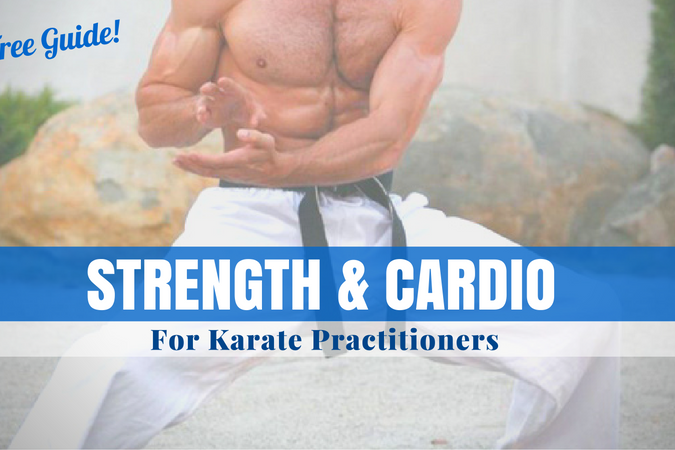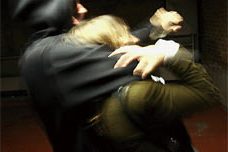Lately I’ve been thinking about Karate quotes regarding the so called “aim” of Karate, as proposed by masters of the old…
Take a look:
“The ultimate aim of the art of Karate lies not in victory nor defeat, but in the perfection of the character of its participants”
– Funakoshi Gichin
Perhaps the most famous one, said by one of the founding “fathers” of modern Karate, Funakoshi Gichin. I bet you’ve read that one a thousand times, right?
Here’s another one:
“The ultimate aim of Karate-do is to build character, conquer human misery and find spiritual freedom”.
Apparently uttered by Miyagi Chojun, founder of Goju-ryu Karate.
Equally utopian.
Because, the fun thing is, these quotes basically state that a Karate master is nothing short of an angel, or a saint! A person of virtually impeccable character, with no visible chinks in his armor.
But, I ask, do you know such a person?
A true master?
Do you know somebody who never becomes angry, or even irritated?
Somebody who always gives to charity, always smiles, always does “the right thing”, is incomparably unselfish, never lies, always is incredibly patient, never hurts nobody, never eats cake (?), always laughs at his boss’ boring jokes, loves veggies…
Does such a person even exist?
It’s doubtful.
And if he does, he sure as hell doesn’t come in a white gi with a red belt slapped on.
I’ve seen too many self-centred grand “masters” on top of their kingdoms throwing fistfuls of ass-goo at everyone questioning their authority and (lack of) experience to believe so. Or… perhaps they’re just not masters yet? Maybe I’m just mistaken. Perhaps they’ve not yet reached that level of perfect manners, fantastic character and saint-like behaviour? They might be masters in the making, right?!
Well, maybe.
I don’t know.
But… I don’t think so.
The crux of the matter is, of course, that the people who are truly good human beings (if there is such a thing), and true masters, don’t care about publicity and thus rarely become known to the rest of us normal, deadly, people.
They have no interest in being admired.
Because they don’t do it for themselves.
The result is, just like in kindergarten, that the ones who shout the loudest get all the attention.
And if those people happen to be in the “right” place -during the “right” time – they might easily be confused for masters in the art of Karate! Which, when the truth is revealed, makes us all question the validity of quotes from our old Karate pioneers. I mean, when the “masters” right in front of our very own eyes are not even near “perfection of the character” or “spiritual freedom”, as proposed by Funakoshi and Miyagi, what are we supposed to think?
I think people simply need to be blinded by “knowledge”.
Because nobody likes to ride in the bandwagon of uncertainty.
Ever since the dawn of mankind we have been made to follow leaders who can gather people together because the advantages of being in groups ownz the advantages of being alone, whether your group is carrying the right knowledge or not (you can never be sure). It has always been more profitable for an individual to tag along with other people in the wrong direction than to be all alone in the right one.
Follow the loud and assertive fool – or the introspective thinker?
Your genes were carried down from the first.
Wow, k, thx. But how do we know if somebody is a master then? “Okay, so I can’t trust what he says and he also happens to burp and fart occasionally, so apparently he has some flaws (or is seriously lactose intolerant), but he’s got a red belt on, along with a pooload of diplomas and certificates on the wall, next to his incredible collection of photos with famous masters, so he must have done something right… right?”
Right.
There was, believe it or not, a time when I myself thought that by simply looking at the belt of somebody I could actually easily determine their skill level. I was about 7 years old at the time, if I remember correctly. The reasoning went:
White belt = nOOb.
Black belt = godlike.
(Purple belt = mysterious, and slightly girly)
Simple as that.
But then I gradually noticed that the farther away from the core that you went (from yourself > dojo > national organization > international organization > different organization but same style > different style > etc.) the less did the belt-theory hold true, and for the most part it got literally flipped like a pancake on b/day.
Because the belt is first and foremost for yourself.
Next, for your sensei.
Next, for your dojo peers, etc.
And then it just spirals out of control, having literally no worth at all for people on the edge of your stylistic limit. So, once I understood that, I said to myself, “okay, if the belt is not a perfect measure, perhaps length of training is?”. I was about 10 at the time, obviously living in a bubble. Like:
1 year of training = nOOb
50 years of training = godlike
But simply asking “so, how many years have you been training?” turns out to be not that much better. At all.
Why? Simply because some people train once a week like zombies on Valium; while the next man trains four times a week like Superman on ecstacy. Yet, they might both have been training for five years in total. And they are not even on the same planet when it comes to skills! Like night and day. Or “like oil and water”, as the Japanese say.
It turns out that what matters more is how you have been training during those years and what you have been training during those years.
And I can’t possibly demand that every person I meet gives me a detailed record of their training history, can I?
Of course not.
So, the solution then became clear.
Regard E-V-E-R-Y-O-N-E as masters.
Or, perhaps master is the wrong word, but regard everyone as somebody with totally different experiences and skills compared to you, and relentlessly try to see what you can extract from him/her… and then add that to your own understanding of Karate.
Although this might seem egocentric at first glance, it is quite the opposite, because you need to become a nobody.
A constant white belt.
You need to become a shadow that literally sucks in knowledge and skill from everyone and everything you meet.
Which I imagine can be quite hard for those who are very attached to their rank/position/status and the advantages that follow. But I don’t care. You must let it go. Throw it all away. You will no even want to go back once you see how your new advantages trumps your former “advantages” (which were more like roadblocks).
Easier said than done, I know.
But the longer you do it, the sweeter it gets.
As an interesting side note, the reaction from other people is quite revealing when met with this approach. Some people will immediately become your self-appointed sensei guru, taking advantage of this “sucker” (you!); while other people will become very suspicious, thinking there is something wrong with this “freak” (you!) therefore refraining from cooperating with you at all.
But, on rare occasions, you meet somebody who has the same attitude as you.
And that’s when magic happens.
“No matter how you may excel in the art of fighting [te], and in your scholastic endeavors, nothing is more important than your behavior and your humanity as observed in daily life.”
– Teijunsoku (b. 1663), Okinawan scholar
Because, isn’t being a master of Karate ultimately about being a master of…
…life?



14 Comments